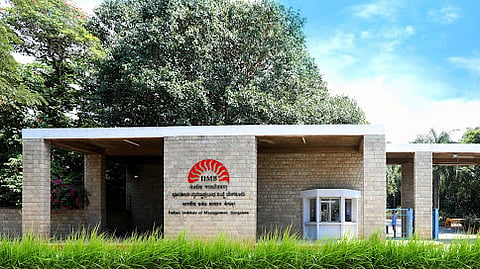

BENGALURU: A recent study revealed how the Indian Institute of Management Bangalore (IIMB) is tackling its carbon footprint in the race to become a net-zero campus. The study, titled ‘Institutional Greenhouse Gas Assessment: A Case Study of the Indian Institute of Management Bangalore Campus,’ conducted by EcoMorphosys, a sustainability consultancy, offers an in-depth analysis of the campus’ greenhouse gas emissions.
The study covers various aspects from electricity usage to waste generation, exploring how each factor contributes to environmental impact. The study, which provides an annual inventory of carbon emissions, divides emissions into three categories-- scope 1 (direct emissions), scope 2 (indirect emissions from purchased energy), and scope 3 (other indirect emissions).
The study also reflected on sustainable initiatives taken up by the institute and highlighted its ‘waste not, want not’ policy that turns food waste into biogas and compost, striving for zero-waste through recycling. Roof-top solar plants meet 12% of the campus’ power needs, and energy-efficient equipment is used throughout the campus.
The use of battery-operated electric vehicles and bicycles helps reduce campus CO2 emissions, and 100% of water is recycled for garden irrigation and storage for annual use, the study highlighted.
It also outlines how emissions are categorized and calculated based on emission factors (EFs), which help estimate CO2 emissions from various activities.
The findings highlighted that the largest ‘direct contributor’ is cooking gas, used in the campus’ mess halls and canteens, which accounts for 57% of direct emissions.
Other significant sources include refrigerant leakage, diesel fuel used for generators, and fuel used in IIMB-owned vehicles. Scope 2 emissions, related to the consumption of electricity, are the largest source of IIMB’s overall carbon footprint, contributing 74% of total emissions. It emphasised the importance of addressing direct emissions from campus activities and reducing the carbon footprint.